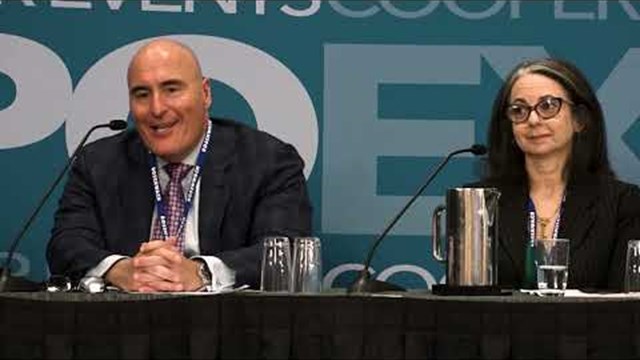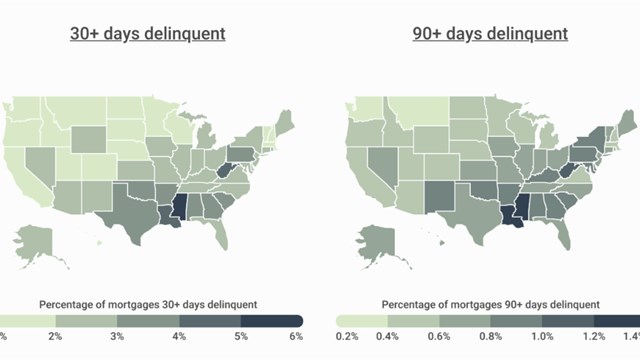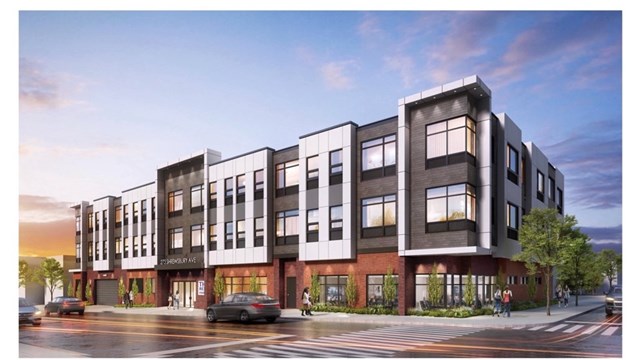The psychosocial impact of the pandemic is far-reaching. And like the rest of the world, residents living in condos, co-ops, and HOAs have been conditioned to keep their distance and turn inward. But even with infection rates slowing overall, vaccines in arms of most age groups, and warmer weather on the horizon, it still remains uncertain how safe residents will feel participating in community activities this summer.
“At first when the pandemic hit, I think it was the idea of ‘let’s get together and get through this,’ but we are human beings, and as [you] hear more and more kids running back and forth, or home office chairs wheeling back and forth—by month three or four relations became strained,” recalls Rashaad Middleton, director of management for New York City-based R.E.M. Residential. “Calls to 311 went up, and I think the number-one complaint was loud televisions and things like that.
“So it was kumbaya at first, ‘I hate my neighbor’ second, and [since] it has been boards and management trying to manage expectations and all these personalities,” Middleton adds.
In some regions of Metro New York, this new post-pandemic norm continues to impact the collective ability to observe and engage in niceties that were once taken for granted—those idle chats by the mailroom, or participating in special committees.
And while the Centers for Disease Control and Prevention (CDC) made mask wearing and social distancing optional in most settings in March 2022, certain properties, including a great many co-ops, condos, and HOAs in New York and New Jersey, are asking residents to remain vigilant.
“We as management 100 percent comply with the CDC and city guidelines,” Middleton says, adding that even though a large majority of residents are vaccinated, many younger children are not, and older residents may have existing health issues that put them at risk. “The city is pretty much lifting all mandates, but at R.E.M. we encourage residents to please continue to wear their mask, and continue to practice social distancing, like limiting to two people at most in elevators, unless they’re members of the same household—things of this nature.”
Slowly Bringing People Back Together
On the Gold Coast of New Jersey, Taylor Management’s regional vice president Larry Rada says the company also follows guidance from the CDC, the World Health Organization, and state mandates. But he notes that as regulations wane, residents are slowly returning to in-person activities.
“With pools, last year was a test, because you had to have a pool ambassador who took notice of who was coming in, in case someone was infected with COVID and you had to track it back and let people know that they might need to get tested,” says Rada. “This year we are not doing that. We are asking residents to be smart—if you feel a symptom, stay away. And this year a lot of people are vaccinated, so more people are comfortable.”
During the height of the pandemic, Rada explains that his company worked closely with the boards of client communities to offer ways for residents to stay connected, including virtual Disney programming for kids and remote yoga classes for adults. As he looks to spring and summer 2022, he says computer screens will be nixed as many boards and committees return to in-person meetings. Additionally, community activities are being planned.
“We have an Easter egg hunt coming up, which we haven’t had since COVID,” he says. “Kids and parents will have some fun, which is a return to some kind of normalcy. So we are opening up more than we did last year, but is it a return to 100 percent normalcy? This is in effect a new normal, and I think this is how we will be from now on.”
For the properties Middleton manages in New York City, there isn’t a great deal of common space, which makes it difficult—and potentially risky—for neighbors to congregate. Nevertheless, he notes that change is slowly occurring.
“One of my co-ops down in SoHo would traditionally do their annual meeting at a church or synagogue, and they are hoping to do that again,” he says. “In fact, they sent out flyers last week polling to see how many people felt comfortable [with that], and the reaction has been good. I think people are ready to see their neighbors again on a more joyous occasion, rather than being told what they can and can’t do.”
At a building he manages uptown, he says the community has “floated the idea” of holding some type of community event in one of the small common areas. “They will also be holding the annual meeting in person as a way of bringing the community back together.”
Board Member Perspectives
Both Middleton and Rada praised board members, many of whom spent the last two years keeping fellow residents safe while trying to strike a peaceful balance between caution and community cohesion. But these were trying times—to the point that some board members called it quits.
“The first year when all the common areas were closed, a lot of residents challenged the decisions the boards were making,” says Rada, “but they didn’t understand the exposure the board would have with insurance regulations.” He adds that some of the backlash was political, with residents taking sides on the issue. “Some board members didn’t want to hear it anymore, and just resigned.”
For most of 2020 and some of 2021, Middleton explains that many boards met weekly with management, instead of the usual monthly check-in. That was a stressful and uncertain time period, and while life seemed to be getting back to “normal” in the summer and fall of 2021, he notes that by that winter, people—including Middleton himself—began getting sick with the omicron COVID variant. This development caused some board members and residents to recoil in fear of yet another lockdown, but Middleton says thankfully, that didn’t happen.
“Luckily we had no board turnover in any of our buildings [since the pandemic], but I’m sure there were some boards that were brought to the brink with internal strife. No one dropped off, and while there were a few new board members elected, it wasn’t due to any type of coup,” says Middleton. “There was a lot of cheering for boards—and for management, too, believe it or not—because I think residents recognized someone was taking care of them, and that feeling kept the boards going.”
For Teddy Fernandez, a recently retired teacher who has lived for many years at Tappan Court, a co-op located in Tarrytown, New York, 2021 was the year he decided to run for a seat on the board. The decision, he said, was loosely connected to the pandemic.
“My wife wanted an emotional support dog, so we formed a [virtual] committee among residents to talk to the board about two years ago,” says Fernandez, who notes that the co-op only allowed cats as pets. “The board rejected our proposal after a year of work, and we discussed having someone from our committee run for a board seat. Since I was retired, I thought I would do it.”
After appealing the decision to county and state regulators, the couple was approved to acquire a dog, and now has a mini goldendoodle. “There hasn’t been an issue with the board,” says Fernandez, adding that the stress and isolation of the pandemic underscored the couple’s need for a canine companion. To date, he says no other resident has approached the board about getting a dog, and there have been no complaints about their pet.
During the pandemic, Fernandez says that Tappan Court encouraged community spirit by offering a shared garden plot on the property, with many residents taking the opportunity to grow vegetables and other plants. And he adds that while the annual meetings have been held via Zoom, the setting may change this year. “I believe the next yearly meeting will be in person, but it’s all subject to where things stand with COVID. But if levels stay low, we may have the meeting in the communal courtyard like we used to.”
Fernandez notes the board has always adhered to all CDC, Westchester County, and state COVID regulations. As mandates change, he feels it is important to be respectful of individual preferences. “Now it comes down to people’s personal comfort levels,” he says, adding that there haven’t been any COVID-related confrontations with residents at Tappan Court that he’s aware of, and that the sense of community in the co-op remains strong.
“I like working on the board and helping people see others’ points of view,” says Fernandez, who plans to run for his seat again when his one-year term expires. “I’ll have to start campaigning again.”
As Rada looks forward, he says that despite certain issues with a few disgruntled residents, the majority of membership came together during the pandemic, creating even stronger bonds. Conceding that life will likely never go back to the pre-COVID days, people, he feels, have become more empathetic and sensitive to their neighbors.
“Now that they are able to hang out and socialize together, they appreciate this ability much more than they did in the past,” says Rada. “What I and Taylor Management learned from this pandemic is not to take knowledge for granted, and always communicate, communicate, and communicate.”
W B King is a freelance writer and contributor to CooperatorNews.










Leave a Comment